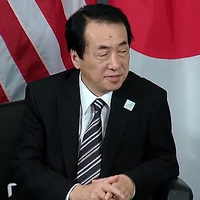The United States and Japan commemorated the 50th anniversary of their security alliance last month with an uneasy sense of ambivalence. On the one hand, the sheer fact that the alliance, firmly rooted in the common interests and shared values of both countries, has persisted for so long is reason enough to celebrate. The U.S. and Japan, in addition to being democracies, are the world's top two economies and two of the largest funders of multilateral institutions. They share a long list of common objectives, from ensuring that China's rise is peaceful and deterring a nuclear North Korea to policing global sea lanes and addressing issues like climate change and human rights.
The alliance is also vital for both countries, albeit for different reasons. For Japan, the alliance has been essential to its security posture, since no other Japanese ally is committed to defending the island country in the event of an armed attack. For the United States, it has provided a means to maintain U.S. forward bases in Japan, both to deter wider regional crises and for operational use in the event that one does arise. The alliance has also allowed the U.S. to maintain a close relationship with a country not only at the heart of Asian security issues, but one that has also made significant contributions to global security, from reconstruction in Afghanistan to aid during the 2004 Asian tsunami to anti-piracy operations in the Gulf of Aden.
Yet several trends in Japanese politics have also added strains to the alliance. These tensions became evident in the months after the Democratic Party of Japan's (DPJ) historic election victory last year, which ended the five-decade long hegemony of the Liberal Democratic Party (LDP). The problem is not that the DPJ's victory illustrates uncertainty in Japan about the validity of the U.S.-Japan alliance, or about the value of Japan's broader relationship with the United States. As Michael Green pointed out (.pdf), the 2009 election was primarily about domestic political and economic reform, rather than foreign or defense policy: Public opinion polls and surveys in Japan show historically high support for the alliance, and continued uneasiness about China and North Korea.

